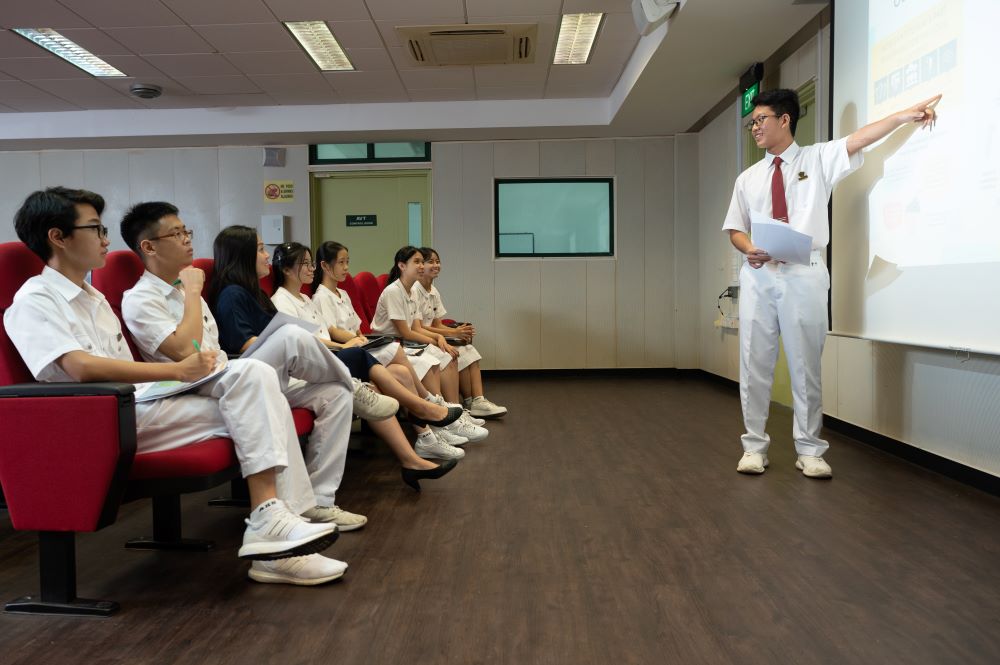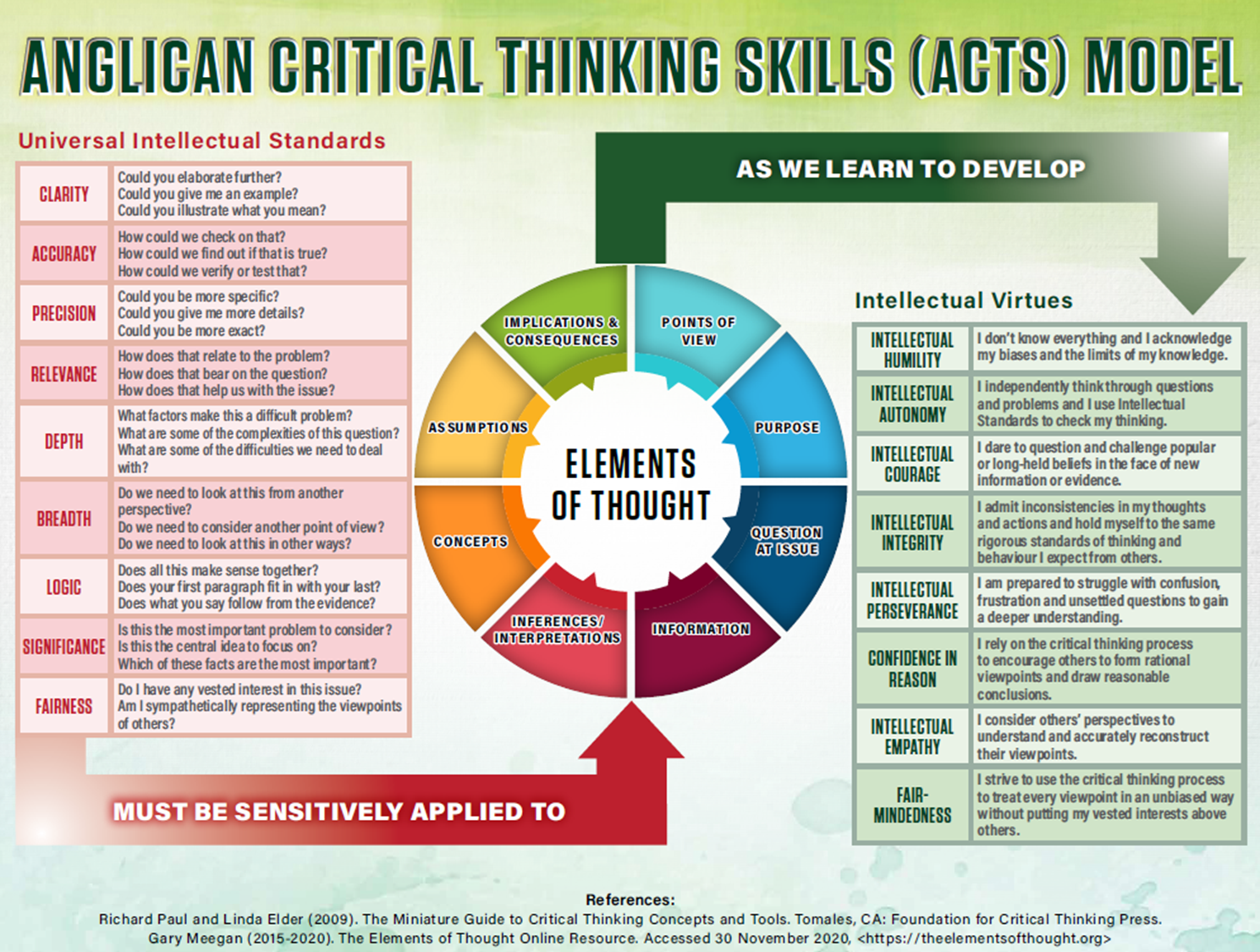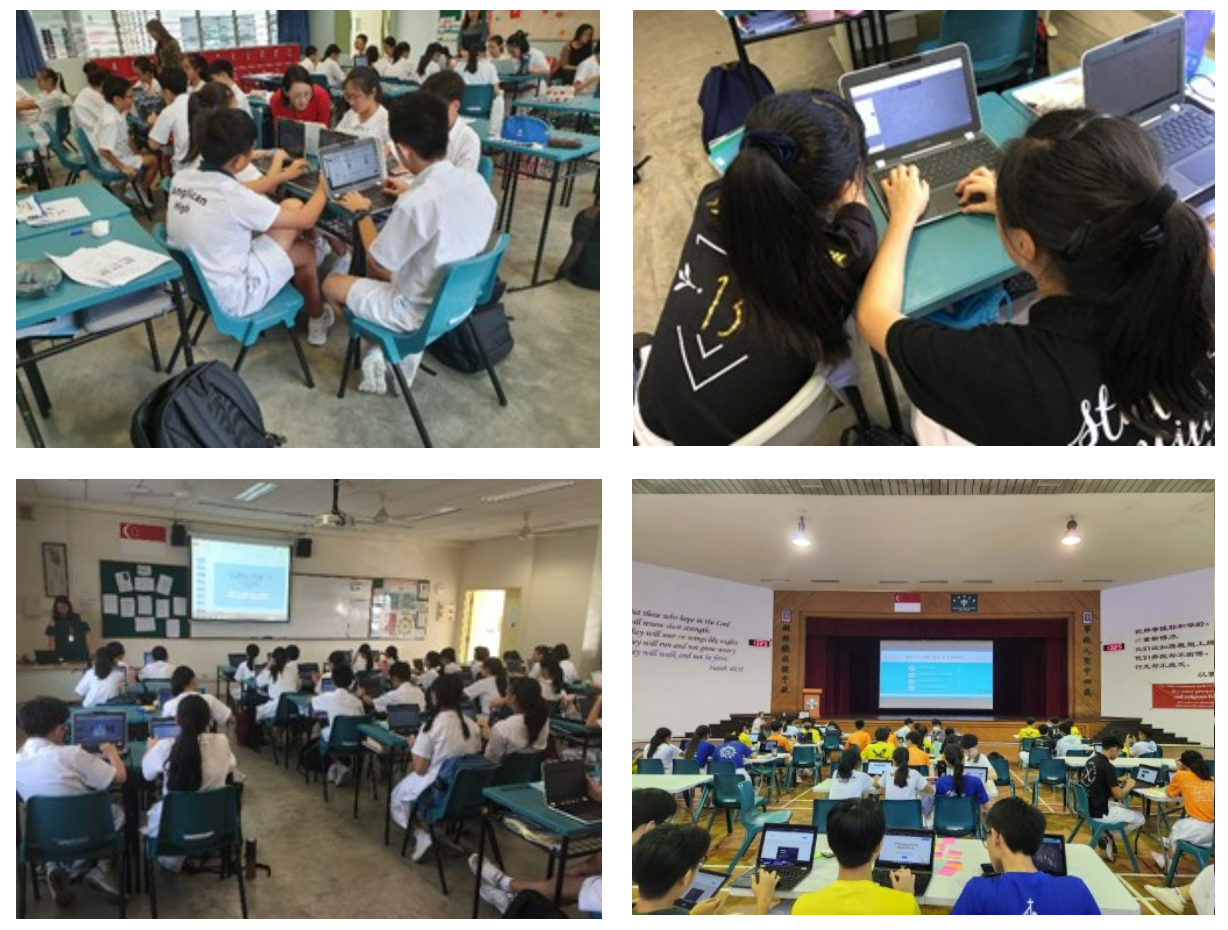Key Curriculum Approaches

Critical Thinking
AHS Students have strong talents and high aspirations. The school seeks to design a curriculum that is catered to the students' ability, interests, talents and aspirations to enable them to be future-ready. We aim to enable each student to be critical thinkers so that they can honorable leaders that can learn for life and create value for others. Anglican Critical Thinking Skills (ACTS) is based on the work of Dr. Richard Paul and Dr. Linda Elder in the field of critical thinking (Fig 1). Critical thinking is the art of analysing and evaluating thinking with a view to improving it. Whenever we think, we think for a purpose within a point of view based on assumptions leading to implications and consequences. We use concepts and theories to make interpretations and inferences from information (e.g. data, facts and experiences) in order to answer questions, solve problems and resolve issues.
At AHS, students are taught to analyse their thinking by learning how to identify the above elements of thought. Students are also taught to evaluate their thinking by applying intellectual standards, such as clarity, accuracy, precision, relevance, depth, breadth, logic, significance, and fairness.
Our ultimate goal is for these standards to become infused in the thinking of our students, forming part of their inner voice, guiding them to reason better to become fair-minded critical thinkers.

Source: https://www.criticalthinking.org/pages/critical-thinking-where-to-begin/796
Learning with Technology
Anglican High School piloted the use of Chromebooks as our learning device in 2018, starting with one class and progressing to eight classes in 2020. Starting 2021, all Secondary One to Three students will have their own personal learning devices under the Personalised Digital Learning Programme (PDLP) by MOE as part of the National Digital Literacy Programme.
The aims of the PDLP includes the following:
- Enhancing teaching and learning through harnessing of technology
- Supporting self-directed and collaborative learning anytime and anywhere
- Supporting the development of digital literacies to thrive in the digital environment
Through the PDLP, students will capitalise on technology to achieve subject mastery and apply knowledge in authentic contexts to solve real-world problems. By leveraging on technology, students will be able to interact and learn online with strong focus on collaboration, communication and critical thinking.


